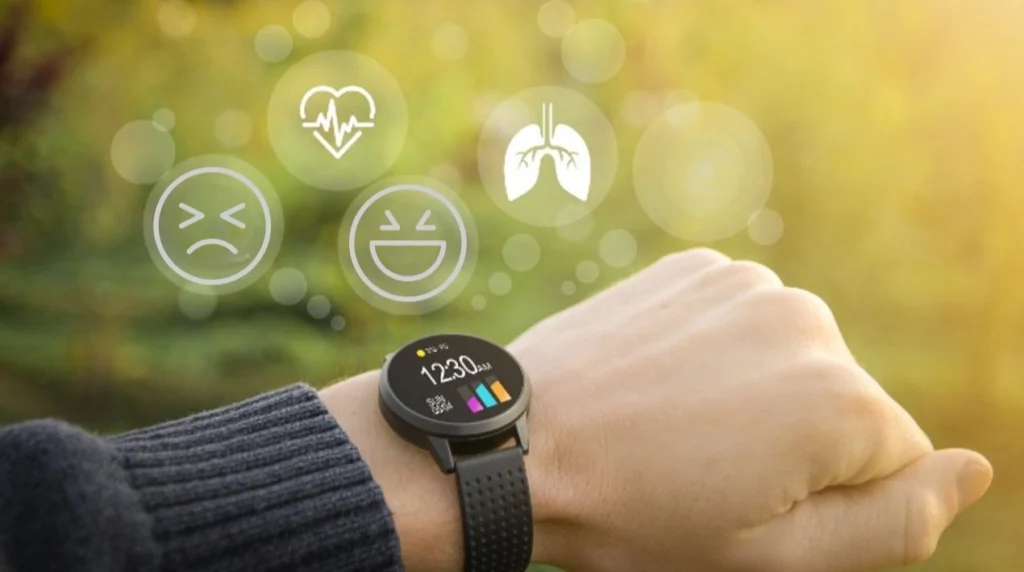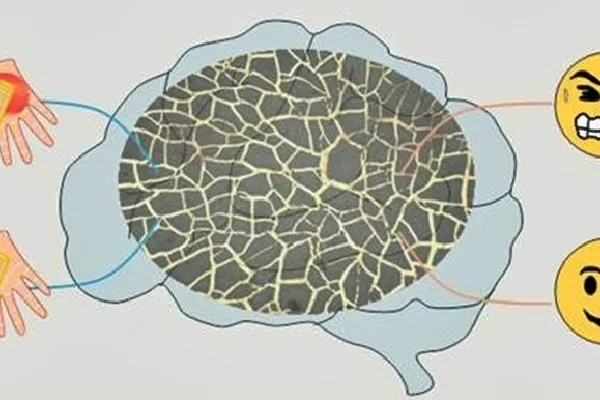Indian scientists develop wearable devices to detect stress

Indian scientists develop wearable devices to detect stress. The team developed the Neuromorphic device — electronic systems that mimic the functions of neurons and synapse — using silver wire network on a stretchable material
In a major breakthrough in wearable technology scientists from the Jawaharlal Nehru Centre for Advanced Scientific Research (JNCASR) in Bengaluru have developed an innovative device capable of sensing stress in a way that mimics the human body’s response to pain.
This new technology could pave the way for smarter, more efficient health monitoring systems, offering the potential for real-time stress detection and feedback to doctors and users.
The wearable device, built using a silver wire network embedded in a flexible, stretchable material, is designed to not only detect strain but also adapt and “learn” from it. By recreating the pain-like responses seen in the human body, it is capable of adjusting its electrical response over time, allowing it to act similarly to how the human nervous system adapts to repeated stress or pain.
This adaptive ability is a key feature that sets the device apart from other sensors, making it more advanced and functional for a wide range of applications, from health monitoring to robotics.
Today’s technology is evolving to be more like the human body, especially in areas such as healthcare and robotics, where devices need to sense and respond to various forms of stress or pain. The development of neuromorphic devices, which are inspired by the way the brain processes and responds to pain, is one such step toward achieving this goal.
In the human body, nociceptors, special sensors in the nervous system, detect pain and trigger responses to protect us from harm. Over time, these responses can change as we become habituated to repetitive stress or pain, reducing its intensity. This concept of “pain habituation” served as the inspiration for the scientists at JNCASR, who sought to create a device that could mimic this adaptive process.
The device works by using a network of tiny silver wires embedded in a stretchable material. When the material is stretched, small gaps form in the silver network, disrupting the electrical pathway. A pulse of electricity is then applied to prompt the silver to fill these gaps, effectively reconnecting the network and “remembering” the event.
Each time the material is stretched and reconnected, the device gradually adjusts its response, similar to how the human body adapts to repeated pain over time. This dynamic process of memory and adaptation allows the device to continuously improve its ability to respond to stress, making it more efficient in real-world applications.
One of the key advantages of this technology is its ability to integrate both sensing and adaptive response within a single flexible unit. Unlike traditional systems that require external sensors or complex setups, this device operates seamlessly, adapting to its environment without additional equipment.
The ability to sense stress and respond in real-time offers exciting possibilities for health monitoring, where doctors could receive immediate feedback about a patient’s stress levels. Such systems could be invaluable for monitoring individuals in high-risk situations, providing early warnings or insights into their emotional or physical state.
The research, published in Materials Horizons by the Royal Society of Chemistry, outlines the potential for this technology to extend beyond healthcare. Its ability to mimic human-like sensory responses could be applied to robotics, allowing machines to become more intuitive and safer when working alongside humans. These “smart” materials could improve human-machine interactions, making robots more responsive to their environment and reducing the likelihood of accidents or errors.
This novel wearable device represents a significant step forward in the development of more intelligent, adaptable technology. By enabling systems to “feel” stress in a way similar to the human body, it has the potential to improve not only healthcare but also the safety and functionality of robotic systems, making technology more responsive, intuitive, and human-centric.

New Delhi, Jan 16: Scientists from Jawaharlal Nehru Centre for Advanced Scientific Research (JNCASR), Bengaluru, an autonomous institute of Department of Science and Technology have developed a novel wearable device that can detect stress.
The team developed the Neuromorphic device — electronic systems that mimic the functions of neurons and synapse — using silver wire network on a stretchable material.
The device can sense strain, mimics pain perception and adapts its electrical response accordingly.
“These pain-like responses in the device paves the way for future smart wearable systems that can help doctors detect stress,” said the researchers.
The team noted that small gaps appear within the silver network, when the material gets stretched.
This temporarily breaks the electrical pathway.
To reconnect, an electric pulse is given, which fills the gaps, and essentially “remembers” the event.
“Each time it is stretched and reconnected, the device gradually adjusts its response, much like how our bodies adapt to repeated pain over time. This dynamic process enables the device to mimic memory and adaptation, bringing humans closer to materials that respond intelligently to their environment,” the team said in the paper, published in the journal Materials Horizons, Royal Society of Chemistry (RSC).
The device also combines sensing and adaptive response in a single, flexible unit. It offers a streamlined, efficient way for technology to adapt to its environment naturally, without complex setups or external sensors.
The research can “lead to more advanced health monitoring systems that “feel” stress like the human body and adapt in real-time, giving feedback to doctors or users,” said the researchers.
Too much stress is known to cause physical and mental health problems.
Stress is known to be a precursor to many health problems, such as high blood pressure, heart disease, stroke, obesity and diabetes.
With Thanks and Reference to:https://opengovasia.com/2025/01/17/india-wearable-tech-mimics-pain-to-detect-stress/ and https://www.greaterkashmir.com/health/indian-scientists-develop-wearable-devices-to-detect-stress/






